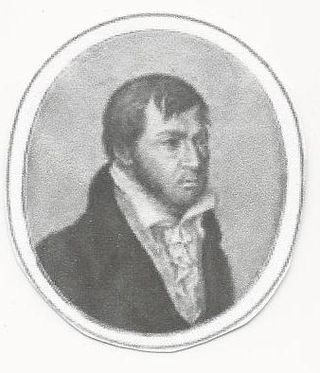
A Generaloberst was the second-highest general officer rank in the German Reichswehr and Wehrmacht, the Austro-Hungarian Common Army, the East German National People's Army and in their respective police services. The rank was equal to a four-star full general but below a general field marshal. The rank was equivalent to a Generaladmiral in the Kriegsmarine until 1945 or to a Flottenadmiral in the Volksmarine until 1990. It was the highest ordinary military rank and the highest military rank awarded in peacetime; the higher rank of general field marshal was awarded only in wartime by the head of state. In general, a Generaloberst had the same privileges as a general field marshal.
Founded in 1958, the International Mineralogical Association (IMA) is an international group of 40 national societies. The goal is to promote the science of mineralogy and to standardize the nomenclature of the 5000 plus known mineral species. The IMA is affiliated with the International Union of Geological Sciences (IUGS).

The Deutsche Morgenländische Gesellschaft, abbreviated DMG, is a scholarly organization dedicated to Oriental studies, that is, to the study of the languages and cultures of the Near East and the Far East, the broader Orient, Asia, Oceania, and Africa.

The Gottfried Wilhelm Leibniz Prize, or Leibniz Prize, is awarded by the German Research Foundation to "exceptional scientists and academics for their outstanding achievements in the field of research". Since 1986, up to ten prizes have been awarded annually to individuals or research groups working at a research institution in Germany or at a German research institution abroad. It is considered the most important research award in Germany.
Alfred Edward "Ted" Ringwood FRS FAA was an Australian experimental geophysicist and geochemist, and the 1988 recipient of the Wollaston Medal.
Karl Ludwig Felix Machatschki was an Austrian mineralogist.
Albert Streckeisen was a Swiss petrographer and petrologist, the son of Basel forensic scientist Adolf Streckeisen.
Elements: An International Magazine of Mineralogy, Geochemistry, and Petrology is a bimonthly peer-reviewed scientific journal published by 18 scientific societies: Mineralogical Society of America, Mineralogical Society of Great Britain and Ireland, Mineralogical Association of Canada, Clay Minerals Society, Geochemical Society, European Association of Geochemistry, International Association of GeoChemistry, Société Française de Minéralogie et de Cristallographie, Association of Applied Geochemists, Deutsche Mineralogische Gesellschaft, Società Italiana di Mineralogia e Petrologia, International Association of Geoanalysts, Polskie Towarzystwo Mineralogiczne, Sociedad Española de Mineralogía, Swiss Society of Mineralogy and Petrology, Meteoritical Society, Japan Association of Mineralogical Sciences and the International Association on the Genesis of Ore Deposits. It was established in January 2005.
The German Mathematical Society is the main professional society of German mathematicians and represents German mathematics within the European Mathematical Society (EMS) and the International Mathematical Union (IMU). It was founded in 1890 in Bremen with the set theorist Georg Cantor as first president. Founding members included Georg Cantor, Felix Klein, Walther von Dyck, David Hilbert, Hermann Minkowski, Carl Runge, Rudolf Sturm, Hermann Schubert, and Heinrich Weber.
Bernard (Bernie) Wood is a British geologist, and professor of mineralogy and senior research fellow at the University of Oxford. He specializes in the thermodynamics of geological systems, using experimental techniques. He is a prominent figure in the field of experimental petrology, having received multiple awards throughout his career and taught at several universities worldwide.
Gottlob Eduard Linck was a German mineralogist.
Friedrich Martin Berwerth was an Austrian mineralogist and petrographer known for his work with meteorites.

Janne Blichert-Toft is a geochemist, specializing in the use of isotopes with applications in understanding planetary mantle-crust evolution, as well as the chemical composition of matter in the universe. To further this research, Blichert-Toft has developed techniques for high-precision Isotope-ratio mass spectrometry measurements.

Johann Heinrich Kopp was a German physician and natural scientist. He was the father of chemist Hermann Franz Moritz Kopp (1817–1892).
Johann Karl Wilhelm Voigt was a German mineralogist and mining engineer.
The German Zoological Society is a learned society in Germany, founded in 1890 at Frankfurt am Main. It is registered as a non-profit organisation based in Munich.
Hermann Max Bruno Sander (23 February 1884, Innsbruck – 5 September 1979, Innsbruck) was an Austrian geologist. He is known, along with Walter Schmidt (1885–1945), for founding petrofabric analysis.




